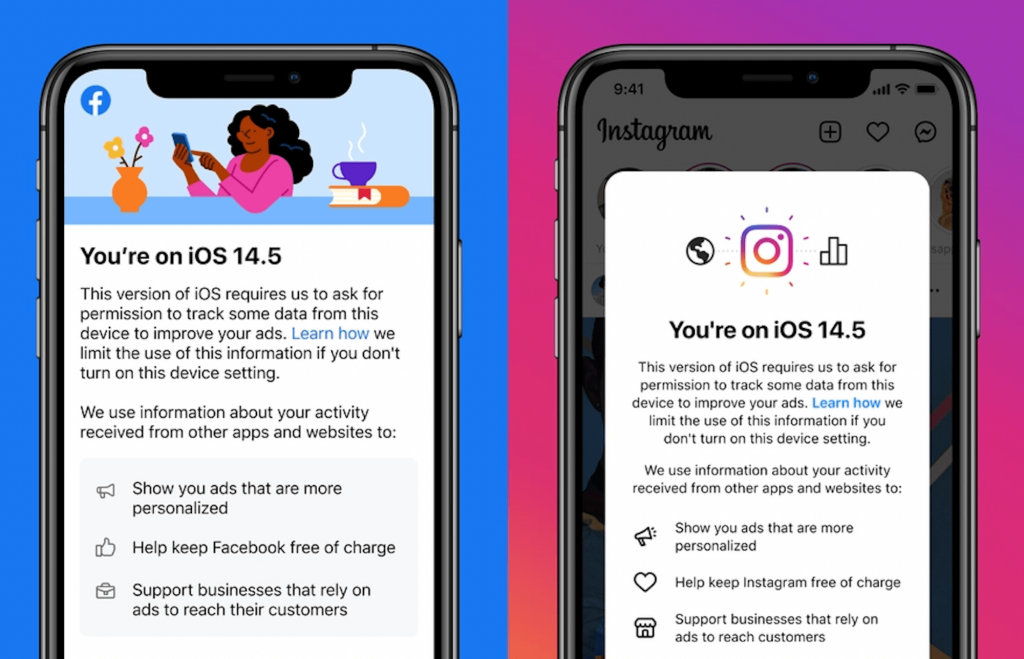It’s a new month, but the on-going bar brawl between Apple and Facebook rolls on. Here’s an update on the Update.
By now, everyone with an iPhone or an iPad capable of accepting software updates (my mother-in-law’s iPhone SE is safe) has bumped up to 14.5. Apple’s new privacy features give users a whole new range of abilities to choose how their data is shared. iPhone users will likely love it, though there’s no data as of yet that might define any statistics about how we’re all choosing to opt-in or opt-out of tracking from their applications.
As we’ve written about before, this new feature is big for a number of reasons. First, it shows Apple’s strongest move ever toward privacy, a move that isn’t completely without risks. Facebook, Apple, and Google, plus any tech company that relies on data and personal information, have a symbiotic relationship. Just as Facebook needs to be on iPhones to be in the pockets of billions of people around the world, Apple needs marquee apps like Facebook to sell its hardware which, at the end of the day, is all that an iPhone is.
Second, it could change the entire business model of a company like Facebook. Just this past weekend, both Facebook and its little brother, Instagram, unveiled new pop-ups geared specifically to Apple users. In the pop-ups, Facebook tries to explain why it needs access to the data Apple users have chosen to restrict and how this information can actually improve the user experience by improving more relevant ads.
Most cryptically and, in our humble opinion, desperately, Facebook goes as far as to hint that the move could be as damaging as to force the platform to a subscription, rather than free and supported by ads. Here’s the full text from what Facebook calls its ‘educational screen’.
To help people make a more informed decision, we’re also showing a screen of our own, along with Apple’s. It will provide more information about how we use personalized ads, which support small businesses and keep apps free. If you accept the prompts for Facebook and Instagram, the ads you see on those apps won’t change. If you decline, you will still see ads, but they will be less relevant to you. Agreeing to these prompts doesn’t result in Facebook collecting new types of data. It just means that we can continue to give people better experiences.
So, Facebook’s counterargument is that allowing tracking will create a more personalized experience by improving ads and help small businesses be able to afford ads. And if you don’t support tracking, you’ll have to pay for Facebook, Instagram, and WhatsApp.

The reality is not that simple. It is true that approximately 75% of Facebook’s ad revenue comes from small businesses to the tune of something like $70 billion per year. But it’s extremely unlikely that the hundreds of thousands of small and medium-sized businesses would stop advertising all at once. And with online sales up $900 billion to $4.2 trillion in 2020, it’s highly, extremely, ridiculously unlikely eCommerce will be less of a priority for businesses of any size in the years ahead.
Users may not get the prompt for another few weeks, but when you do, think about it: what information is being kept private, and how it impacts your experience? If you have to see ads, would you rather see relevant ones? Does Mark Zuckerberg have enough of your private information?
Let us know; are you allowing tracking or giving it a hard pass? Email your thoughts to cody@qandm.agency.

